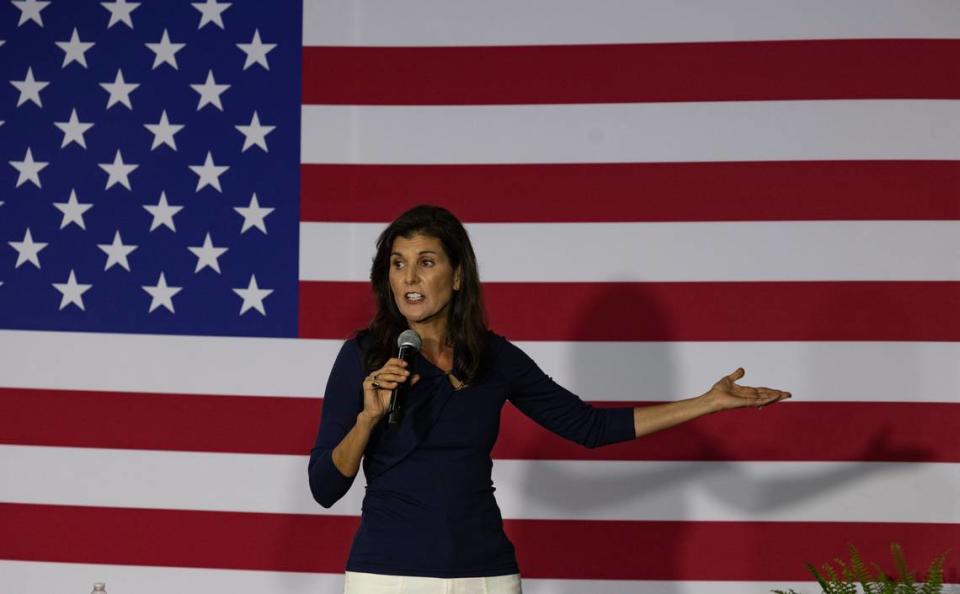Furor and conflicting views continue over Haley’s statement about origin of Civil War | Opinion
- Oops!Something went wrong.Please try again later.
Missing history?
Concerning the furor directed at Nikki Haley for answering a question about the origins of the Civil War without mentioning slavery, and instead asserted the states’ rights argument, articulating freedom from an oppressive national government:
After much push-back, former Gov. Haley retraced her steps and conceded “of course the war was about slavery.”
What has not been reported is the special South Carolina irony contained in her initial remarks.
I would hope every South Carolina high school student is taught that the first state to secede from the Union was South Carolina. The reasons were clear. They were spelled out in the South Carolina Declaration of Secession.
The authors believed the northern states were hostile to slavery, failed to enforce the Fugitive Slave Act, aimed at returning run-always, and sought to encourage the abolitionist movement including local slave revolts.
They particularly decried the election of Abraham Lincoln who they viewed as the epitome of the anti-slavery movement.
The Declaration of Secession was signed December 1860. Other Southern states followed suit. The war started with the firing on Ft. Sumter four months later.
That’s a lot of history that failed to be mentioned by a thoughtful resident.
John Kassel, Columbia
Money and power
Poor Nikki Hailey. Her campaign for vice president might be over, but she could have educated the country about the cause of the War Between the States.
She could have quoted Lincoln who said something like, “If I could keep the Union together by abolishing slavery, I would do so. If I could keep the Union together by not abolishing slavery, I would also do so.”
Freedom of the slaves was an issue seized upon by Lincoln later on in the war to justify the horrific loss of life.
It was much more palatable for grieving families in the North to think their loved ones had died in a glorious cause, than the real reason, which was to continue federal government dominion over the huge and prosperous land holdings in the South.
That war was about the same thing that all wars are about. Money and power. The South had lots of it, and the North did not want to give it up.
Is there any chance then or even today that a half million white men in the North would have given their lives to improve the conditions of Black folks in the South?
Were white folks ever that righteous?
John D Miles, Blythewood
Support Hate Crimes Act
South Carolina remains one of only two states in the entire United States without hate crime legislation as legislators continuously fail to pass the Clementa C. Pinckney Hate Crimes Act, session after session.
Considering that the state is home to 30 active hate groups according to the Southern Poverty Law Center, it is both dangerous and irresponsible to leave no legal measures in place to bring perpetrators of hate crimes to justice and safeguard affected victims.
As the president of the South Carolina NAACP Youth and College Division, I am committed to ensuring that minorities and communities that are at risk of falling victim to hate crimes receive the necessary protection and security against blatant acts of racism.
In my public role as a Black woman, I am part of the very communities that face these risks.
I refuse to allow intimidation or racial bias to persist unchecked in silencing my voice on crucial issues pertaining to race.
I urge the South Carolina General Assembly to adopt the Clementa C. Pinckney Hate Crimes Act in the upcoming session, and for constituents of the legislators stalling the passage of this act to reach out to their state representatives and senators.
We must act deliberately and expeditiously to stand against racism and advocate for the enactment of this vital act.
Courtney McClain, Spartanburg


